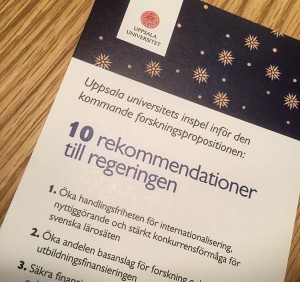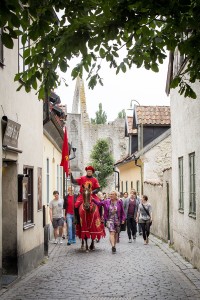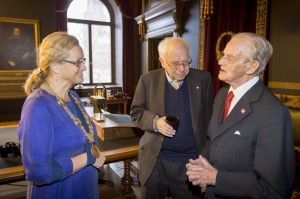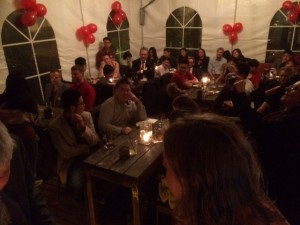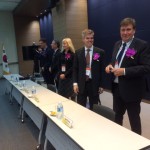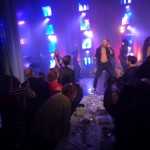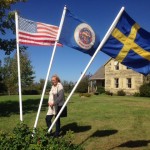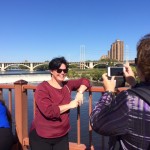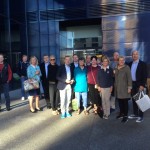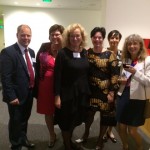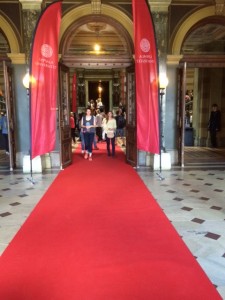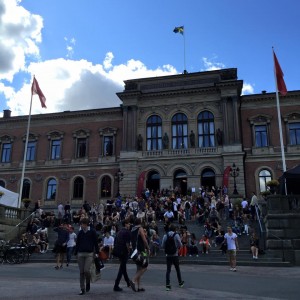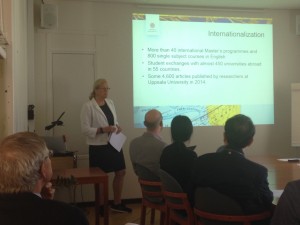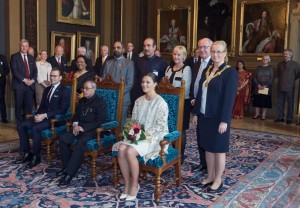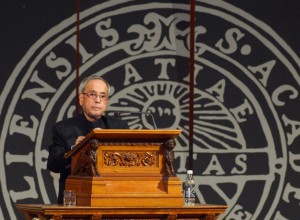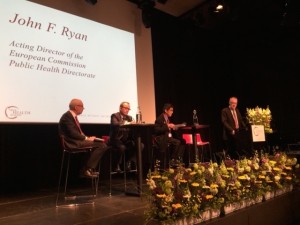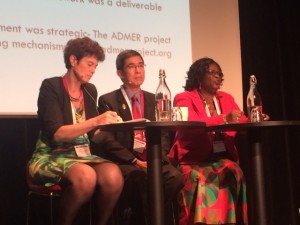In accordance with tradition, the Vice-Chancellors of universities and university colleges gathered for 24 hours in January in Steningevik to meet with the Swedish Minister for Higher Education and Research. Minister Helene Hellmark Knutsson introduced her new State Secretary Karin Röding, Anders Lönn’s successor. Karin Röding is familiar to many of us, her most recent appointment was as the Vice-Chancellor of Mälardalen University. In her introduction, the minister spoke about the national situation, and the challenges the Swedish government is facing, with 160 000 refugees arriving last year. The amount of children (under the age of 18) in Sweden is expected to grow by half a million in the coming five years. In comparison, the current total is two million. This places great demands on schools, and the shortage of qualified teachers is expected to grow even larger. Some measures are being implemented, but they are highly unlikely to be sufficient. I think this should be cause for a thorough and long-term discussion of the dimensioning of higher education. As I have said many times before, Uppsala University has the capacity to provide education for many more motivated and engaged students, as long as we are given the task and the required resources.
The minister emphasised the importance of the ongoing validation work and praised several upcoming initiatives, but also called for more creativity, and welcomed further suggestions and initiatives. Uppsala University participates in several projects, and we have appointed a coordinator to handle proposals and coordinate our efforts with other government agencies.
The upcoming research bill scheduled for October was also addressed by the minister. She particularly raised the idea of including more research in teacher education, and mentioned Skola-ALF, a proposal we helped draft. Other emphasised questions included career paths, internationalisation and equality of opportunity. Yet few practical suggestions were put forth.
The minister considers the admission system to be too multifaceted, and there I fully agree. The government is considering launching an evaluation of the admission system, which has grown far too convoluted and complex. The new system is supposed to be simple and easy to grasp, in order to increase the throughput and ensure that applicants have the required prior knowledge, but there was no word on when the evaluation is expected to begin.
As we now have initiated the Q&R 17, I was naturally interested to learn the minister’s view of Fokus — the Swedish Research Council’s proposed national evaluation system. A proposal that Uppsala University has firmly rejected. She said that they want to avoid an unwieldy system, and that they would prefer to have a broad outline of the general direction we are headed under our current policies rather than detailed information. If so, I am fully convinced that Fokus is the wrong tool for the task.
The rest of the Vice-Chancellor meeting involved a heads-up from UKÄ on upcoming events, MOOCs (there will be a report soon), and internationalisation.

